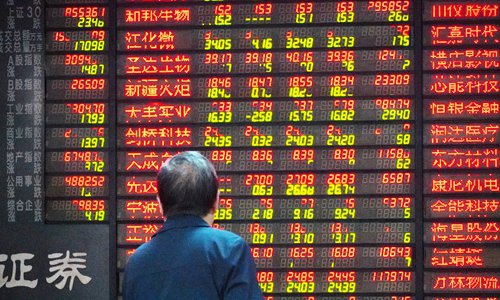HOME >> SOURCE
China’s military shares open higher on Monday as state-owned enterprises resume work amid onslaught coronavirus
Source:Global Times Published: 2020/2/17 11:42:20

Investors at a stock exchange in Nanjing, capital of East China's Jiangsu Province. Photo: VCG
China's military shares led gains on Monday's market opening as a number of industrial military enterprises resume production amid the coronavirus outbreak, and as the reported US ban on the sale of airplane engines to China's passenger jet C919 lifts key A shares involving in the supply of self-developed components.
As of 10:30 am on Monday, five aviation-related shares including ADDSINO Co and AECC Aero Science and Technology Co had surged to the daily limit of 10 percent. Tianhe Defense Co soared by 8.89 percent and AVICHT by 1.68 percent.
The upward trend comes after media reports claiming that Washington is considering banning US-based firm General Electric Co from selling engines for China's homegrown domestic passenger plane.
As the C919 relies on key components from US companies including engines and flight control systems, the potential ban could mean Chinese military enterprises will speed up the development of homegrown parts to replace US suppliers. That possibility then boosted market sentiment, analysts said.
Another shot to the capital market comes from the resumption of work by major state-owned military enterprises such as China Aerospace Science & Industry Corp and China Aerospace Science and Technology Corporation, which undertakes strategically important national projects such as missile defense, rocket launches and Mars exploration.
An industry insider, who only spoke on the condition of anonymity, told the Global Times on Monday that some state-owned enterprises have devised a six-day working scheme to make up for delays in the progress of key projects.
As of 11:11 am, the benchmark Shanghai Composite Index had gained 1.28 percent, while the Shenzhen Component Index had jumped 1.91 percent and the ChiNext index was up 2.90 percent.
Global Times